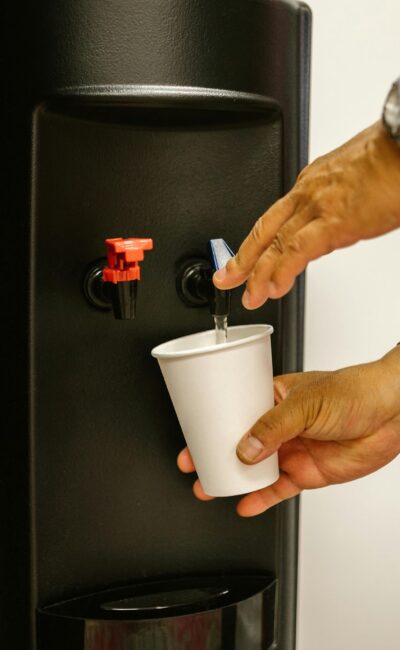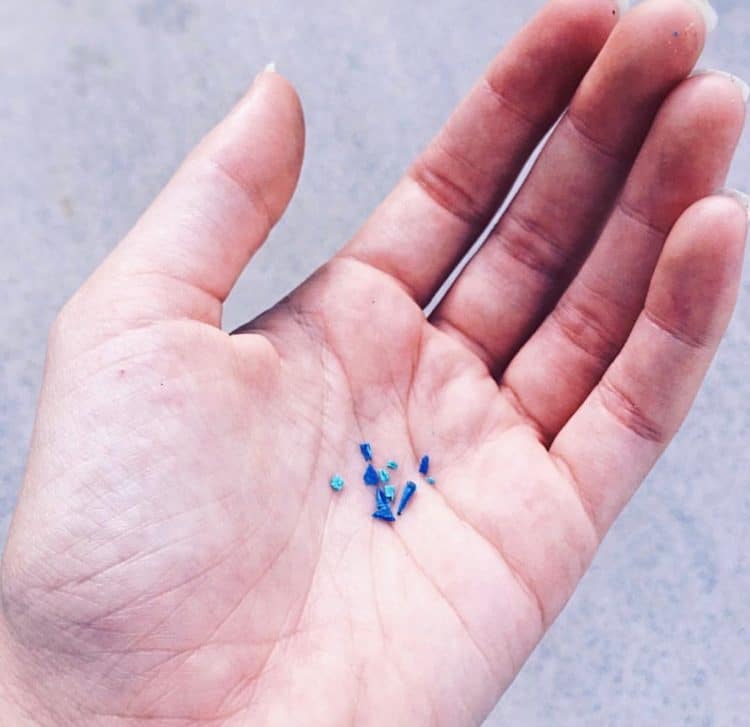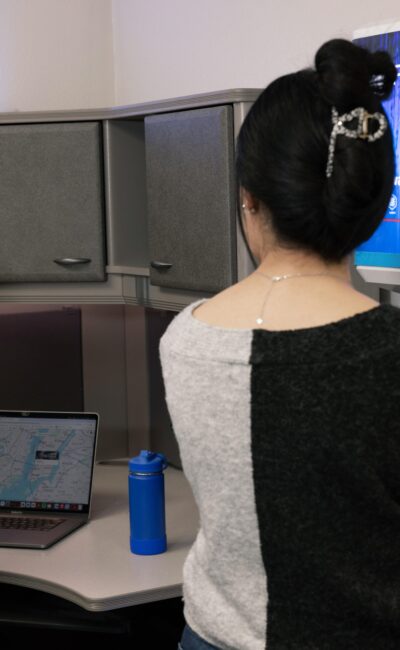The evolution of sustainability has come a long way over the past few decades. Thirty years ago, recycling bins were hardly a thought, and drinking bottled water was starting to gain more traction. Fast forward to today, and most major cities have recycling in public areas, some going as far as to separate plastics from other types of recyclables. However, the amount of plastic waste has increased as bottled water continues to be the way people stay hydrated.
Students and faculty often choose the bottled water route because it’s convenient, and they feel confident they’re drinking water without contaminants, especially considering the findings in most tap water systems. Customer research shows that 87% trust FloWater over water fountains and for a good reason, since an increasing number of school districts show elevated levels of lead in the water or aren’t sure about the quality of water at all.
To support change and increase sustainability in schools requires an alternative to drinking water from the fountain or plastic bottles. However, we need a solution that makes sense and works for everyone. The water must taste delicious, be free, and readily available. FloWater has set a new standard for improving sustainability practices on campuses across the country and highlighting the benefits of being waste-free.
The innovative FloWater Water Refill Station delivers fresh, great-tasting water to the masses in mere seconds. It eliminates up to 99% of contaminants found in tap water and transforms it into water that has the essential minerals and electrolytes that make it beneficial for health. It also eliminates the need for plastic bottles and reduces the total amount of plastic waste found on campuses.
The more opportunities shift to allow city schools to follow sustainable practices, the easier it will become to adapt to them. Just a few years ago, it may have seemed unheard of to replace drinking fountains with filtered hydration stations, but that’s the way efforts are headed. The students of today care about protecting the planet for tomorrow’s use and using a water cooler dispenser is one significant way that helps with that initiative.
Eliminate The Use of Plastic Bottles
FloWater’s Water Refill Stations support the use of reusable water bottles and give students free access to purified water whenever they want it. At any given time, seven gallons of tap water will filter through a multi-step process. This filtration process removes all contaminants, pollutants, chemicals, and odors from the water to create the best possible drinking experience.
Every time water dispenses, it auto-replenishes and can quickly serve a high capacity of students. There’s no waiting in slow, long lines at the water fountain or concerns over being “out of stock.” Also, the recessed nozzle and open fill area fit any size refillable container, which offers more flexibility for students and staff who want to drink more water. Fill up a gallon jug, a water jar for office use, or individual reusable water bottles, whatever it takes to drink more water and use less plastic.
As another environmentally-friendly benefit, the refill station uses LED lights and sleep mode to save energy when it’s not in use. Plus, it requires little to no maintenance or waste for administrators, since most only require a filter change once per year. In order to spark change in schools, there must be a way for students to easily jump on board. FloWater Water Refill Station is the answer. This sustainable solution provides delicious-tasting water on-demand whenever people want to hydrate.
Invest in water refill stations as an alternative to bottled beverages or as a strategy to slowly eliminate vending machines and water fountains altogether. Either way, the introduction of these water bottle filling stations for schools promote healthier habits by giving students an accessible and eco-friendly way to stay hydrated.
Introduce Ways Eco-Friendly Activities
Plastic waste is a massive problem across campuses. Every gesture delivers a long-lasting positive impact on the environment. By learning about sustainability in schools, it sets up students for a lifetime of eco-conscious habits. Educating students creates more opportunities for them to share with their families and in their communities.
Eliminating the use of plastic bottles largely alleviates the amount of plastic waste per day with little effort required by students to participate. Other ways schools can follow more sustainable practices include:
- Set up recycling bins that separate plastic, paper, and other materials
- Swap out old light fixtures with more energy-efficient models
- Start a school-wide garden to educate more on growing healthy food in organic ways
- Initiate a bike-to-school campaign to encourage more people to walk, bike, or take public transportation versus driving to school
- Reduce the amount of paper used by storing and sending documents electronically
In addition to helping the planet, these practices help save on energy and make use of resources for more extended periods. Schools that are intentional about increasing sustainability in schools experience less waste, fewer costs, and more participation from students who want to stand behind a substantial cause.
Inspire them to consistently demonstrate ways they are saving energy and its effect on the school and the environment. It will keep the topic at the forefront of their minds on a consistent basis. Soon, drinking water from refill stations will be as second nature as seeing recycling bins. The idea of having access to free, filtered water at schools through a sustainable model can start to be the norm rather than the exception.
Partner With Organizations in The Community
In addition to providing education and resources among students, schools that host community events promote sustainability to people outside the campus as well. Instead of providing bottled water at these gatherings, the presence of a water refill station can handle a large crowd without the plastic waste that’s left behind. It also eliminates the hassle that comes with ordering, transporting, and distributing hundreds of bottled waters at one time. The result is a more eco-friendly event and less cleanup for organizers.
Being active in the community and with other schools in the district draws more involvement from the public when it comes to school activities, such as sporting events, theatre productions, and fundraisers. Not all events require food or elaborate setup, but people will always want access to clean water. Make it available without using plastic and begin to build a new norm of what people can expect in the future.
The key is to implement small habits that will stick. Installing a water refill station is an easy way to get started because it delivers a necessity everyone wants already: clean water. It’s likely people don’t want to use plastic bottles as much as they do but don’t have other options that seem as convenient to them. By promoting that convenience and showing how much it saves on plastic waste, it’ll be easier to change minds to stop using plastic bottles altogether.
Sustainability Helps Keep Students Hydrated
With the installation of a FloWater Water Refill Station, students receive numerous benefits, with none of the setbacks associated with water fountains or bottled water. The water tastes crisp and refreshing and dispensed within seconds. And, it eliminates the need for waste from single-use bottles or plastic jugs or water coolers. FloWater Water Refill Stations encourages students to stay better hydrated while honoring what’s best for the planet.
Drinking water regularly, getting plenty of rest, and following a balanced diet are the standards for good health. People generally follow the second two factors but have a difficult time maintaining the first. Adequate hydration helps with cognitive function, improves strength and endurance, and can help ward off illness. Proper hydration is especially helpful in schools since germs and sickness can travel quickly; thus, causing attendance to decline.
The benefits of drinking more water are endless. Staying hydrated helps with kidney and liver function, supports the joints and muscles, and aids in detoxifying the body. Other benefits include:
- Improved energy levels and brain function
- Maximized physical performance, especially important for student-athletes
- Healthy weight maintenance
- Reduced headaches, fatigue, and cramping
- Regulated body temperature
- Clearer skin
The same can’t be said for soft drinks or sports beverages that have calories, caffeine, and sugar. Yet, students turn to these drinks because they like the taste, and they’re easy to get. The continuing focus on water education and the importance of hydration serves as a reminder to some and a new lesson to others. To learn how much your students typically drink, send out a survey asking how many glasses of water they drink per day and what would convince them to drink more. Then, take actionable steps based on the results. This will help you in building a better understanding of your students’ hydration habits. Understanding their habits can aid you to impact the young minds of your students, and possibly lessen their carbon footprint.
A general understanding of any misconceptions about the value of water or how it is sourced can begin to change drinking habits for the better, even in a small way. Increase hydration among students and sustainability in schools by using a refill station. Offer the right resources and educational opportunities that make sustainability feasible and enjoyable for everyone. FloWater Water Refill Stations will be an extreme environmental impact as they will help eliminate the use of plastic bottles once and for all.




